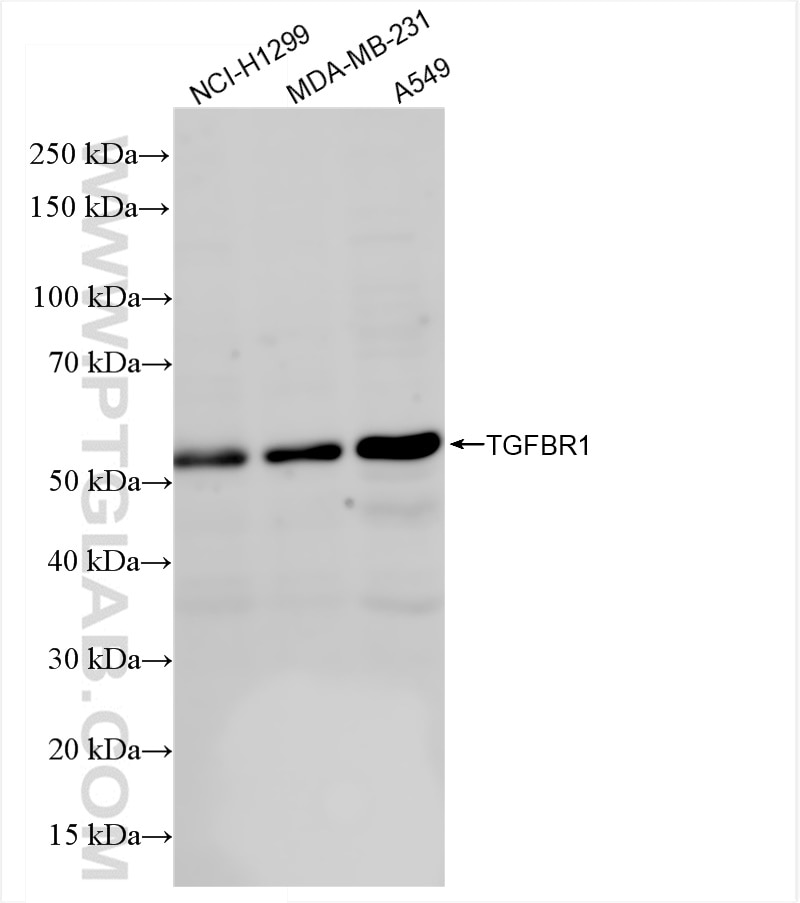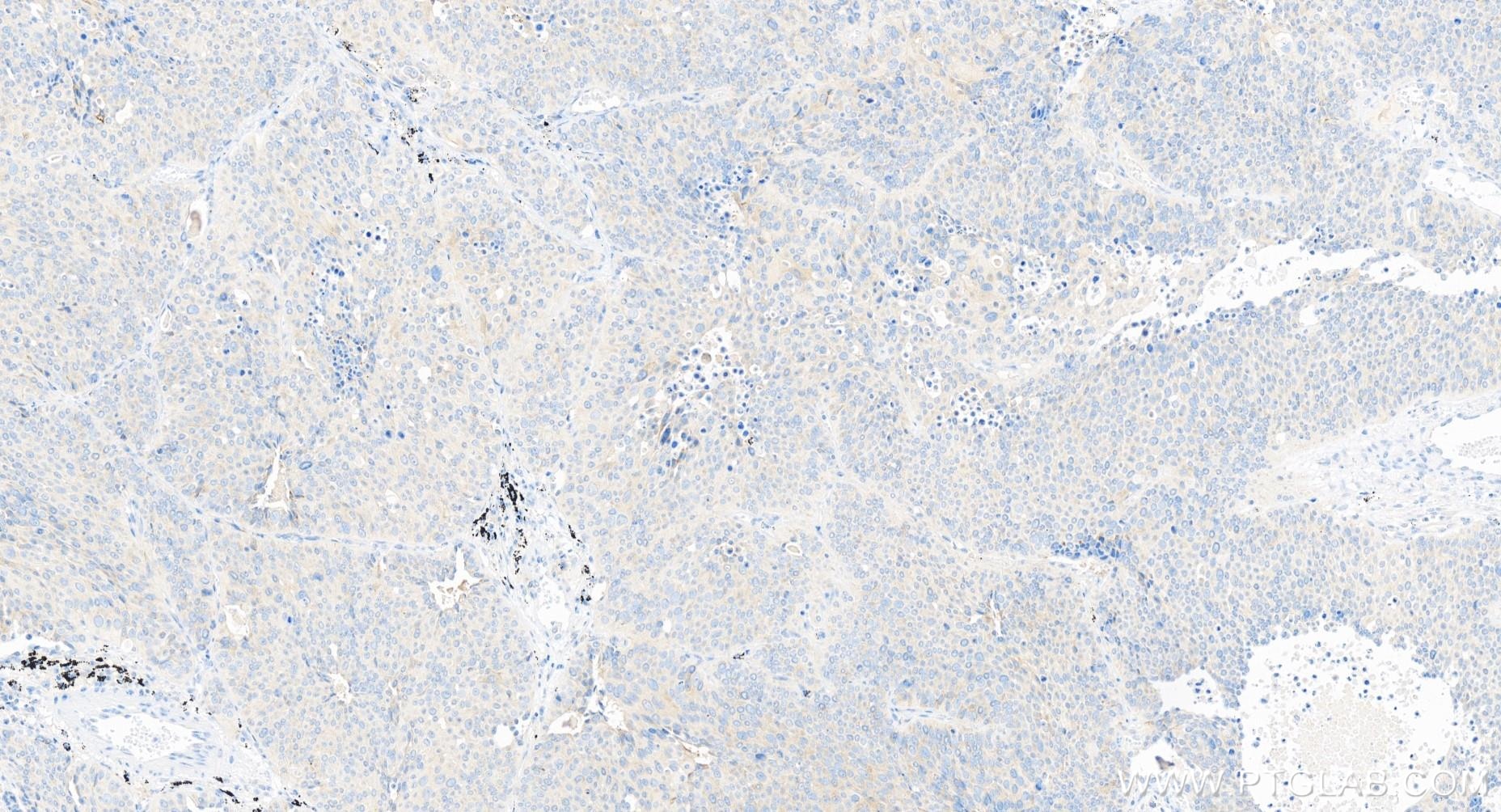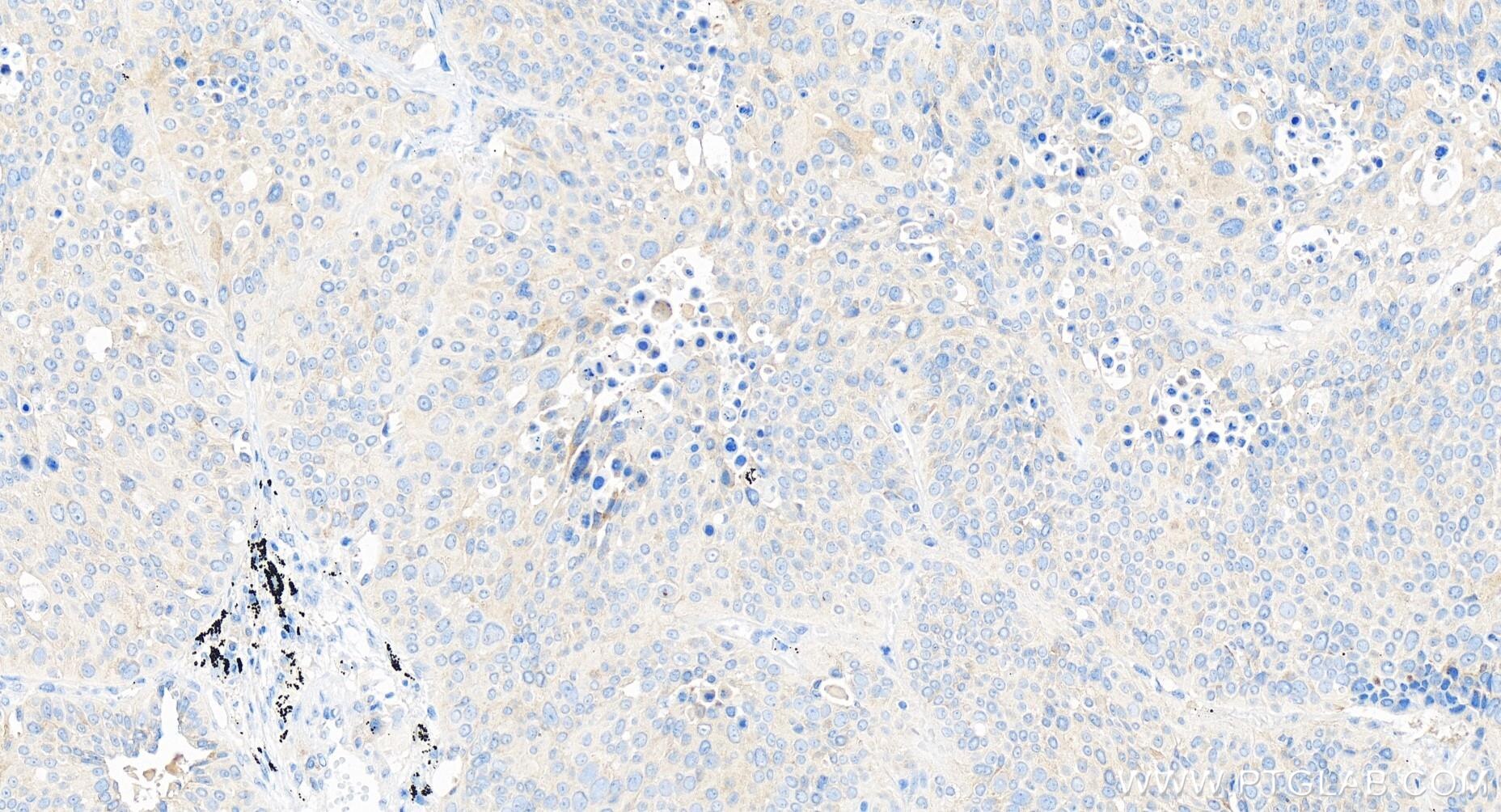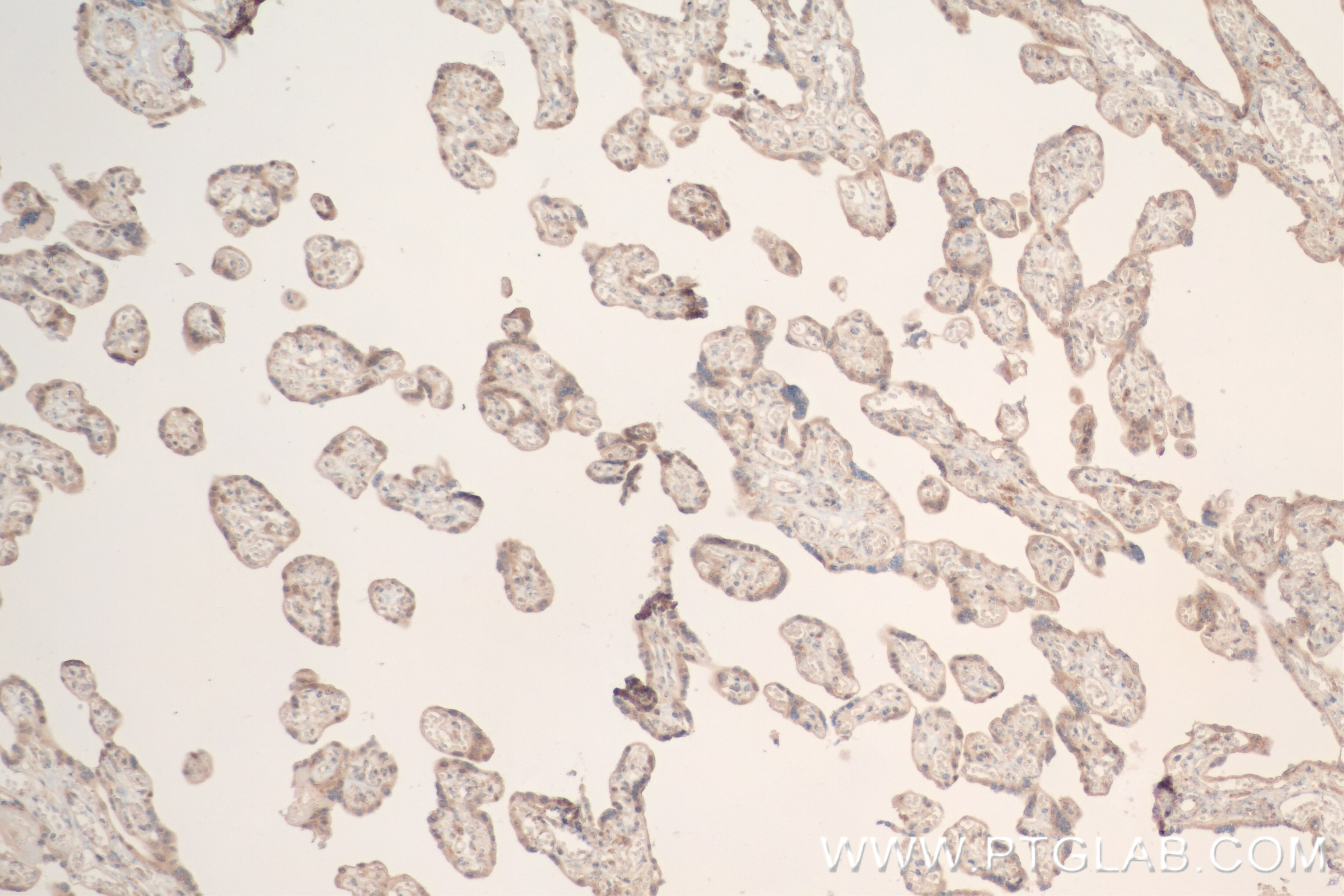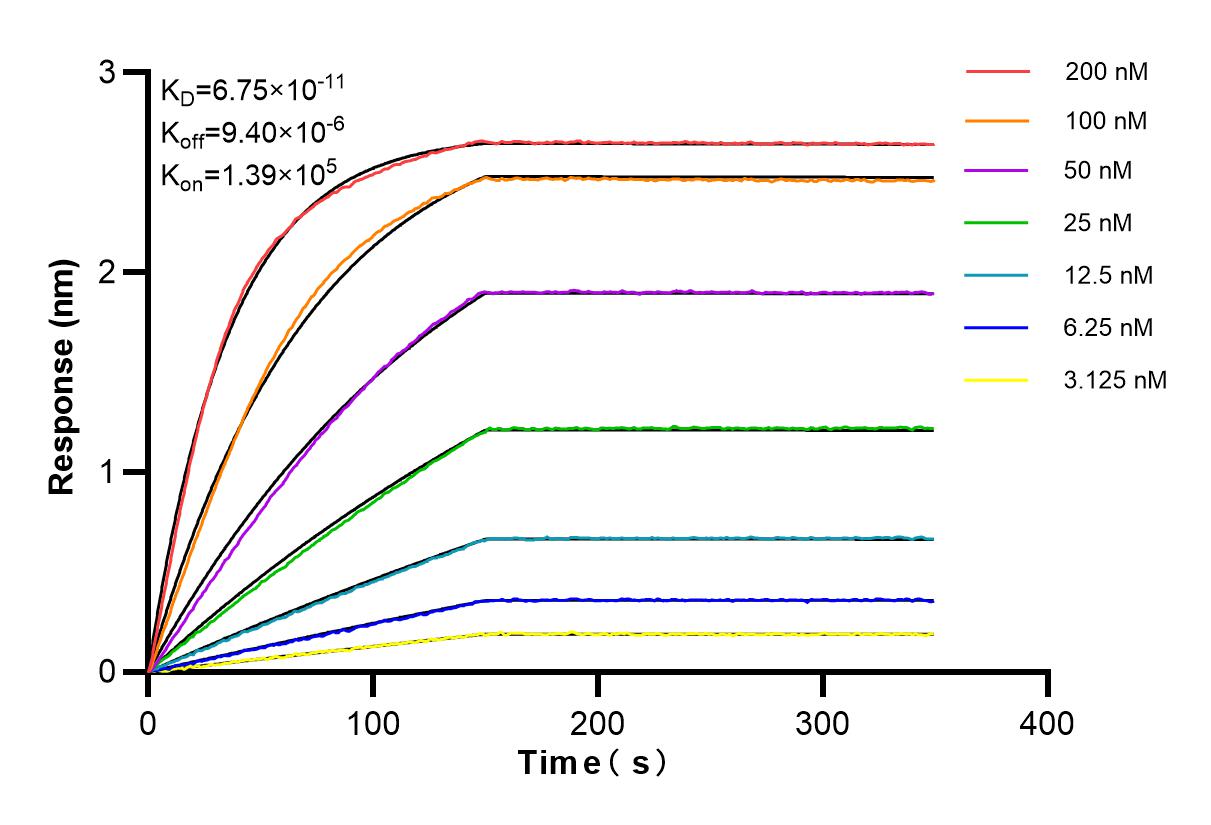TGFBR1 Rekombinanter Antikörper
TGFBR1 Rekombinant Antikörper für WB, IHC, ELISA
Wirt / Isotyp
Kaninchen / IgG
Getestete Reaktivität
human
Anwendung
WB, IHC, ELISA
Konjugation
Unkonjugiert
CloneNo.
241441A11
Kat-Nr. : 84453-1-RR
Synonyme
Geprüfte Anwendungen
| Erfolgreiche Detektion in WB | NCI-H1299-Zellen, A549-Zellen, MDA-MB-231-Zellen |
| Erfolgreiche Detektion in IHC | humanes Lungenkarzinomgewebe, humanes Plazenta-Gewebe Hinweis: Antigendemaskierung mit TE-Puffer pH 9,0 empfohlen. (*) Wahlweise kann die Antigendemaskierung auch mit Citratpuffer pH 6,0 erfolgen. |
Empfohlene Verdünnung
| Anwendung | Verdünnung |
|---|---|
| Western Blot (WB) | WB : 1:1000-1:4000 |
| Immunhistochemie (IHC) | IHC : 1:200-1:800 |
| It is recommended that this reagent should be titrated in each testing system to obtain optimal results. | |
| Sample-dependent, check data in validation data gallery | |
Produktinformation
84453-1-RR bindet in WB, IHC, ELISA TGFBR1 und zeigt Reaktivität mit human
| Getestete Reaktivität | human |
| Wirt / Isotyp | Kaninchen / IgG |
| Klonalität | Rekombinant |
| Typ | Antikörper |
| Immunogen | TGFBR1 fusion protein Ag31620 |
| Vollständiger Name | transforming growth factor, beta receptor 1 |
| Berechnetes Molekulargewicht | 56KD |
| Beobachtetes Molekulargewicht | 56 kDa |
| GenBank-Zugangsnummer | NM_004612 |
| Gene symbol | TGFBR1 |
| Gene ID (NCBI) | 7046 |
| Konjugation | Unkonjugiert |
| Form | Liquid |
| Reinigungsmethode | Protein A purfication |
| Lagerungspuffer | PBS with 0.02% sodium azide and 50% glycerol |
| Lagerungsbedingungen | Bei -20°C lagern. Nach dem Versand ein Jahr lang stabil Aliquotieren ist bei -20oC Lagerung nicht notwendig. 20ul Größen enthalten 0,1% BSA. |
Hintergrundinformationen
TGFBR1 (TGF-beta receptor type-1) encodes a serine/threonine kinase receptor for transforming growth factor-beta. TGFB1, TGFB2 and TGFB3 signals are transduced from the cell surface to the cytoplasm and regulate lots of physiological and pathological processes including cell cycle arrest in epithelial and hematopoietic cells, control of mesenchymal cell proliferation and differentiation, wound healing, extracellular matrix production, immunosuppression and carcinogenesis. Mutations in both TGFBR2 and TGFBR1 were associated with early onset and aggressive thoracic aortic disease with MFS-like skeletal features, but also hypertelorism, craniosynostosis, developmental delay, cleft palate and bifid uvula, congenital heart disease and aneurysms, and dissections throughout the arterial tree with marked arterial tortuosity (PMID: 15731757, PMID: 27879313).
Protokolle
| PRODUKTSPEZIFISCHE PROTOKOLLE | |
|---|---|
| WB protocol for TGFBR1 antibody 84453-1-RR | Protokoll herunterladen |
| IHC protocol for TGFBR1 antibody 84453-1-RR | Protokoll herunterladenl |
| STANDARD-PROTOKOLLE | |
|---|---|
| Klicken Sie hier, um unsere Standardprotokolle anzuzeigen |
